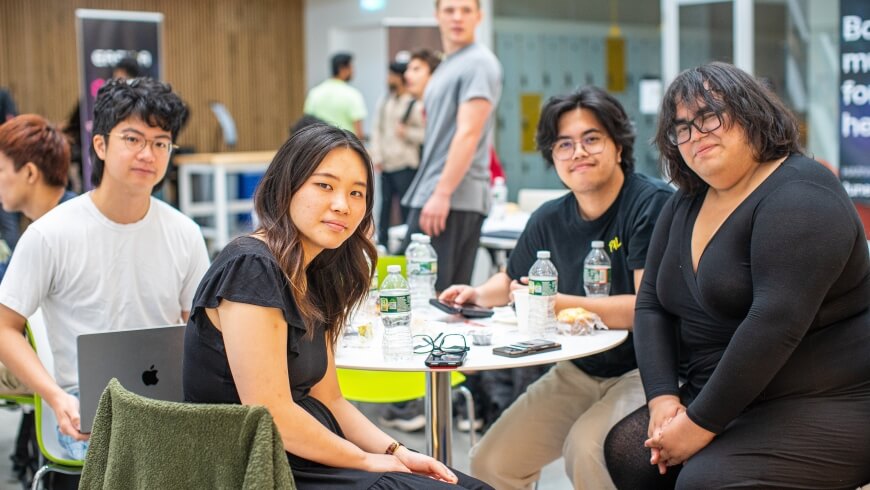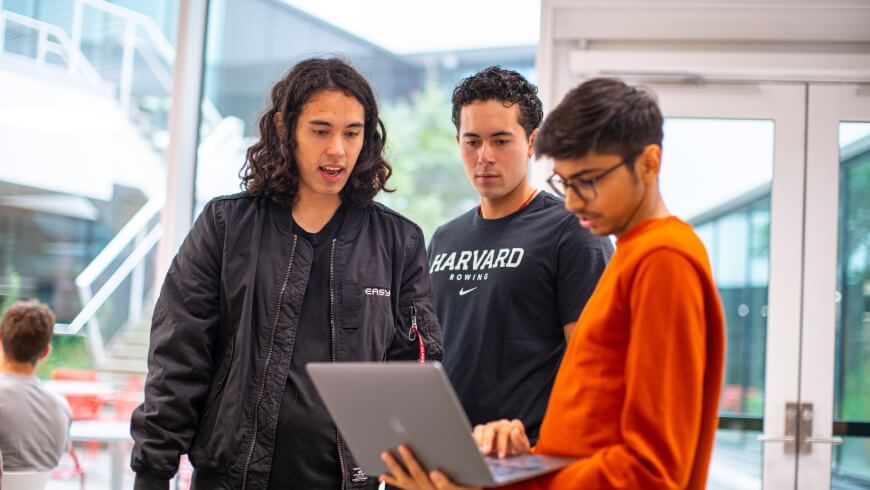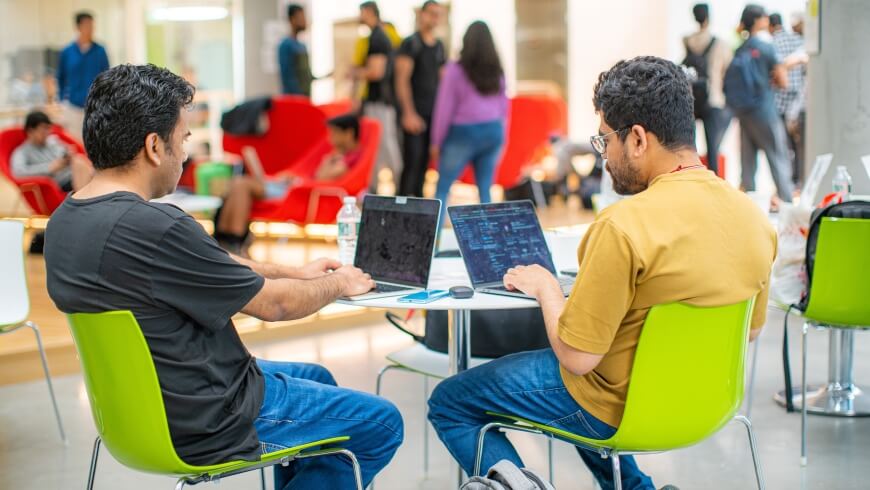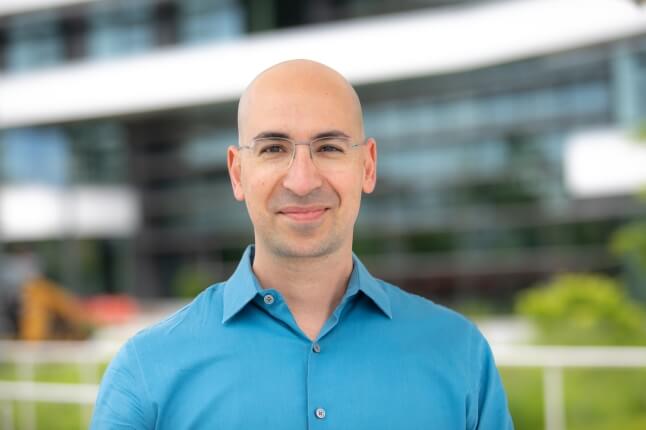News
Students gather at the EasyA x Harvard Hackathon at the Science and Engineering Complex. (EasyA)
The use of blockchain has grown considerably over the last few years, with U.S. businesses spending an estimated $4.2 billion on the technology in 2022. While some blockchain-based applications, such as cryptocurrency and non-fungible tokens (NFTs), have become controversial, the concept of a decentralized, secure and easily traceable data system appeals to a wide range of industries, including banking, manufacturing and retail.
The Harvard John A. Paulson School of Engineering and Applied Sciences (SEAS) recently provided an opportunity for students to hone their blockchain development skills at the EasyA x Harvard Hackathon. The Science and Engineering Complex (SEC) hosted more than 300 students from Harvard and beyond in which participants had 36 hours to develop and pitch a decentralized app using blockchain technology. The event was organized by the Harvard Blockchain Club, whose faculty advisors are David Parkes, George F. Colony Professor of Computer Science at SEAS, and Scott Kominers, Professor of Business Administration at Harvard Business School.
“It was cool to see students from all over, not just Harvard, and the energy was so great,” said organizer Felix Kwok, a rising third-year student studying computational neuroscience. “Students don’t want to have to dedicate weeks to a blockchain project, but if you do it all in one designated weekend, they can get their work done beforehand, go to the hackathon, learn, build their project and have an amazing foundation in the topic.”
Three students hover around a laptop at the EasyA x Harvard Hackathon at the Science and Engineering Complex. (EasyA)
The event drew students from across Harvard, many of whom are spending their summer here as part of the Program for Research in Science and Engineering. Other colleges represented included MIT, Northeastern University, Babson College, and Bentley University. Students spent the weekend designing a range of apps, including blockchain-heavy apps such as secure ways to transfer NFTs or housing contracts and less blockchain-heavy apps such as an AI voice generator that could respond to prompts with calming, motivational statements, and a backgammon simulator.
Doug Yang and Ethan Tan, both computer science students at SEAS, took first place with Aegis Protocol, which helps protect users from fraudulent cryptocurrency behavior. Northeastern University students Abhay Deshpande and Narasimha Reddy took second place with Polkowars, an online card game.
The event was sponsored by EasyA, a start-up founded by Kwok’s older brothers Phil and Dom Kwok that teaches blockchain programming languages for beginners. EasyA and the Harvard Blockchain Club teamed up for a much larger Hack Boston event last fall, and the collaboration proved successful enough to repeat it.
Students work together at the EasyA x Harvard Hackathon at the Science and Engineering Complex. (EasyA)
“SEAS was really invaluable in helping organize the space,” Kwok said. “People really loved the space, especially people not from Harvard who’d never been to the SEC before. The space itself is so impressive, the atrium. It’s inspiring to be in a space like that.”
Despite his brothers’ company, Kwok didn’t become interested in blockchains until late in his first year at Harvard. He’s since not only joined the Harvard Blockchain Club, but spun off a related student group, the Harvard Blockchain Research Lab. The lab produces strategy papers for businesses looking to implement blockchain, as well as potential solutions to some of the technology’s challenges, such as the high energy cost of cryptocurrencies.
“There are a lot of blockchain solutions that require far less energy, and a lot of the papers we produce try to show that fact,” Kwok said. “There’s a lot of stigma with blockchains relating to the environment, privacy and security, so the lab has a mission of removing that stigma and propelling forward the best blockchain technologies. Hopefully, in 10 years blockchain will be involved in everything you do, and you won’t even realize.”
Topics: Computer Science, Student Organizations
Cutting-edge science delivered direct to your inbox.
Join the Harvard SEAS mailing list.
Press Contact
Matt Goisman | mgoisman@g.harvard.edu





